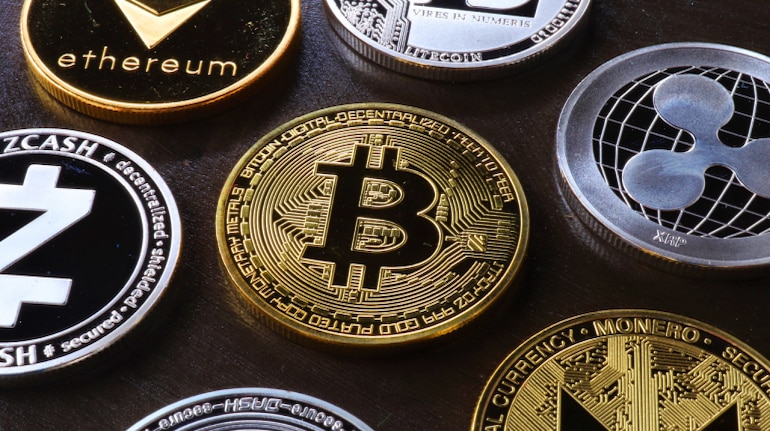



The recent synthesis paper from the International Monetary Fund (IMF) and Financial Stability Board (FSB) has re-energised the global debate on cryptocurrencies. It has become evident that the recent consensus of the G20 on the necessity of crypto regulation is akin to passing the baton in a relay race of policymaking. The crypto industry finds itself at the centre of a long and winding relay race, with each stage raising more questions than answers.
In this IMF-FSB paper, a glaring issue takes centre stage — the futility of blanket bans on crypto-assets. These bans, encompassing both trading and mining activities, prove to be not only a challenge for financial regulators but also a counterproductive endeavour. The borderless nature of cryptocurrencies incentivises individuals and entities to evade such bans, amplifying financial integrity risks. Moreover, the migration of crypto activity from one jurisdiction to another introduces spillover risks, further complicating the already intricate global regulatory landscape.
In an increasingly interconnected world, the imperative is clear: achieving a global consensus on regulation. It could start with ‘acceptable common minimum’ regulation, with the liberty of each nation to build on that framework for its own market. Cryptocurrencies transcend borders, necessitating international cooperation to address the complexities and risks tied to this digital asset class. A unified global approach can ensure fairness, minimise regulatory loopholes, and uphold financial stability. However, the question lingers, why the delay in reaching a decision?
The answer lies in the inherent conflict between cryptocurrencies and the established authority of sovereigns to issue and oversee currencies. Some countries, like India, have taken a hardline anti-crypto stance, while the United States, with the largest crypto user base and substantial debt, grapples with a policy dilemma. The recent G20 meetings in New Delhi provided yet another platform for governments to deliberate and push a final decision on crypto regulation to a later day.
Finding the middle ground on regulationHowever, amidst this regulatory ambiguity, the crypto industry possesses valuable technological assets in the form of blockchains and decentralised finance (DeFi) solutions that could serve the greater public good. It is accepted that governments cannot permit crypto to function in a manner that challenges their supremacy over national currencies. Therefore, a compromise is crucial.
Enter the concept of regulated crypto-assets, or virtual digital assets (VDAs). This middle ground could offer a face-saving solution for both the crypto industry and governments. In countries like India, embracing regulated crypto-assets could pave the way for a trust-based crypto-asset industry. Much like how a few decades ago, the National Stock Exchange (NSE) transformed equity trading into a modern, technologically advanced stock exchange, regulated crypto-assets could find legitimacy. They could be valued and marked-to-market in individual demat statements, while exchanges could operate under licenses and regulatory oversight from a markets regulator like SEBI. In this scenario, the crypto industry would demonstrate its willingness to cooperate with regulators, ensuring transparency, auditability, and compliance with financial laws, and providing consumer protection while offering them financial products. Simultaneously, governments can assert their control over financial stability, monetary policy and currencies, striking a delicate balance between innovation and stability.
One notable concern in the realm of cryptocurrencies is the inherent risk associated with the concentration of depository and clearing functions. Unlike traditional stock markets, where various entities manage these critical roles, cryptocurrencies often rely on a limited set of entities to fulfil these functions. This concentration introduces vulnerability, as a disruption or failure in these central entities can have profound consequences for the entire crypto ecosystem. This risk underscores the need for robust regulatory oversight and contingency planning to ensure the resilience of crypto markets in the face of potential challenges.
Commitment to Ethical PracticesThe crypto industry must also grasp the significance of the 'fit and proper' criteria that financial regulators would apply to key management personnel (KMPs) of a market infrastructure institution (MII), such as a potential crypto exchange. These criteria ensure that individuals in key roles possess the necessary qualifications, experience, and integrity to safeguard market integrity and protect investors. It is important for crypto founders to understand that many of them may not make this regulatory tape, and have to bring in senior experienced leaders to run these exchanges. Understanding and complying with these regulatory standards will not only foster trust within the crypto community but also signal the industry's commitment to responsible and ethical practices.
Investors, on the other hand, should recognise the benefits of a regulated crypto asset market. Embracing regulatory oversight provides much-needed transparency and clarity regarding the market's future trajectory. Rather than resisting regulators, investors stand to gain from the security and reliability that come with a well-regulated crypto market.
Sovereign supremacy, often encapsulated by the axiom 'the state is right,' assumes paramount importance in the context of emerging technologies like cryptos. With the potential for significant disruption to financial markets and consumer interests at stake, the primary objective must be the stability of financial systems and the protection of consumers. Governments have a duty to ensure that innovations in the crypto space align with broader societal interests, thereby reinforcing their authority to regulate and oversee these developments in the greater interest of the public good.
Srinath Sridharan is author, policy researcher and corporate advisor. Twitter: @ssmumbai. Views are personal, and do not represent the stand of this publication.
Discover the latest Business News, Sensex, and Nifty updates. Obtain Personal Finance insights, tax queries, and expert opinions on Moneycontrol or download the Moneycontrol App to stay updated!
Find the best of Al News in one place, specially curated for you every weekend.
Stay on top of the latest tech trends and biggest startup news.